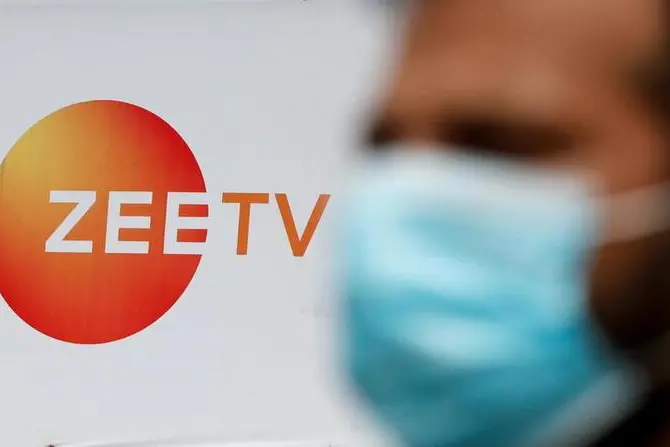PHOTO
(The author is a Reuters Breakingviews columnist. The opinions expressed are her own.)
MUMBAI - Corporate activism has a basic script, and a U.S. fund manager that has emerged as an unlikely lead actor in an Indian TV drama has finally found its lines.
After weeks of near-silence, Invesco on Monday published an open letteroutlining its concerns over the way boss Punit Goenka and his family have run broadcaster Zee Entertainment. The 18%-owner, which had been agitating for a leadership overhaul without publicly explaining why, also calls out the unfair terms of an $11 billion merger Goenka has hashed out with Sony Pictures. The founding family, Invesco argues, is favouring itself at the expense of minority investors by proposing to gift itself a 2% equity stake via a “non-compete” clause despite the fact that Goenka will lead the enlarged entity for five years. It’s a fair point and a major step by the top investor towards galvanising other shareholders to oust Goenka and appoint six fresh faces to the board.
That Invesco has gotten this far, and even going to the courts to assert its right to demand an extraordinary general meeting, is already a big win for corporate governance in India, where foreign agitators are rarely found trying to hold tycoons to account. Established U.S. boardroom antagonists including investor Carl Icahn and Paul Singer’s Elliott Management tend to steer clear of companies dominated by large shareholders and markets where courts are inefficient.
Zee became an easier target after debt troubles forced the group’s fading patriarch Subhash Chandra and his related entities to sell down their stake from over 30% in 2019, to its current less than 4%, giving the fund manager a chance to increase its ownership. In a previous governance era, when banks were easier to persuade to roll over loans, the founder known as the father of Indian television might have held onto his shares and his cast-iron grip over the company. Instead, Invesco is in a rare position to aggressively push for a reworked deal with Sony, or another buyer.
The prospect of an ownership change has lifted Zee’s stock up almost 70% since Sept. 9, just before the start of Invesco’s governance drama. Pushing for better sale terms can also help close the nearly 24% gap with the price implied by the Sony deal. The U.S. fund manager, not known for corporate activism, may have had a clumsy debut in India, but is fast becoming a rising star.
CONTEXT NEWS
- Invesco on Oct. 11 published an open letter to shareholders outlining its concerns with the current management of Zee Entertainment and its proposed way forward for the top broadcaster.
- India's companies court on Oct. 8 gave Zee two weeks to file its reply to a case brought by two institutional investors that are demanding a meeting of shareholders to vote on ousting boss Punit Goenka and other management changes.
- Invesco-affiliated entities, which together hold 17.9% of Zee shares, want the company to call an extraordinary general meeting ahead of the company's planned merger with the local unit of Japan's Sony Pictures Networks India.
(The author is a Reuters Breakingviews columnist. The opinions expressed are her own.)
(Editing by Robyn Mak and Katrina Hamlin) ((For previous columns by the author, Reuters customers can click on GALANI/ SIGN UP FOR BREAKINGVIEWS EMAIL ALERTS http://bit.ly/BVsubscribe | una.galani@thomsonreuters.com; Reuters Messaging: una.galani.thomsonreuters.com@reuters.net))





















